H2020 Projects
LIFE Projects
GPP projects
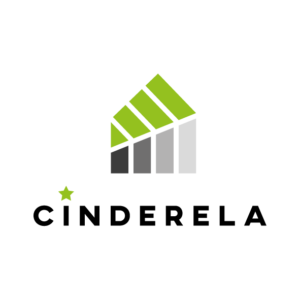
CINDERELA – New Circular Economy Business Model for More Sustainable Urban Construction
CINERELA is a demonstration project with a strong application focus and ambition to make urban construction sector more resource efficient. To address this issue CINDERELA will deliver a circular economy business model accompanied by technological solutions and a pool of knowledge in the form of “one-stop-shop” (CinderOSS) service that will enable the use of locally/regionally available secondary raw materials recovered from waste streams available in urban and semi-urban areas in construction applications. The pilot demonstrations of CINDERELA serve as a test track for proving the applicability of the individual elements of the circular business model and the CinderOSS service under different functional and systemic environments in Maribor (Slovenia), Madrid-Hennares corridor (Spain) and Skopje (Macedonia). A feasibility study for the environmental technology verification of innovative SRM based solutions is planned in the scope of the project.
CINDERELA is coordinated by the Slovenian National Building and Civil Engineering Institute and involves 13 partners from 7 European countries (Slovenia, Spain, Italy, Poland, Serbia, The Netherlands and Macedonia).
Website: https://www.cinderela.eu/ | Twitter: @CinderH2020 | LinkedIn: CINDERELA Project

REWAISE – Resilient Water Innovation Economy
REWAISE works to create a new “smart water ecosystem”, integrating an intelligent digital framework for decentralised water services and decision-making, involving all relevant stakeholders to embrace the true value of water. The results will be a carbon-free, sustainable hydrological cycle, in line with the concept of a resilient circular economy. REWAISE will recover energy, nutrients and materials from water in real operational environments, implementing technological innovations and new water governance methods with a network of 9 living labs in 5 countries. REWAISE will generate the full Value of Water, considering three key technical, economic and societal factors:
- • value in water, by extracting minerals from seawater brine, recovering nutrients from wastewater, and converting all organic matter and biomass into energy
- • value from water, developing the business of sustainable services and innovative products all along the water cycle, working with start-ups and SMEs to give them privileged access to the large utility users
- • value through water, generating wellbeing in society through stakeholder participation and new governance methods to maximize the positive effects of innovation for the users and the environment.
Based on its 9 living labs, REWAISE will provide real operational environments and implement technological innovations and new water governance methods, enhancing social engagement, adapting normative barriers, and developing common digital tools in a holistic approach of a water-smart society. The concepts will be scalable and replicable to other utilities in Europe and worldwide, boosting new business and employment related to water.
REWAISE will make use of the Environmental Technology Verification (ETV) to accelerate market uptake and increase replication of REWAISE innovations. Reliable technology assessment will be performed by a REWAISE partner (IETU) as one of the EU verification Bodies accredited for Water Treatment and Monitoring.
This ETV will consist of a selection of the most promising technologies beyond TRL7 and assessment of the most mature technologies (TRL 8-9) from each 3 REWAISE’s hubs (Mediterranean, Atlantic and Continental ones) under ETV Pilot Programme.
Website: http://rewaise.eu/ | Twitter: @REWAISE_EU | LinkedIn: rewaise-eu-project
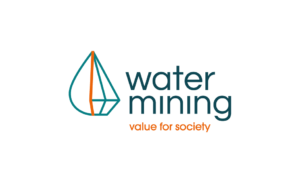
WATER-MINING – Mining water & resources from desalination brines, urban & industrial wastewater streams
WATER-MINING is an EU-funded multidisciplinary research project that creates water management solutions using a circular economy approach. The project’s consortium consists of 38 public and private partners and four linked third parties from 12 countries and is led by the Delft University of Technology (TU Delft, the Netherlands). WATER-MINING works with pilot sites in Cyprus, Spain, Portugal, Italy and the Netherlands to demonstrate new and efficient ways to reclaim nutrients, minerals, biopolymers, energy and freshwater from desalination, and industrial and urban wastewater. To successfully integrate these value-added products into resource supply chains, the project produces science-based, market-oriented policy recommendations, designs circular business models, and engages stakeholders, leading to sustainable management of water resources.
Website: https://watermining.eu/ | LinkedIn: water-mining h2020 | Twitter: @watermining
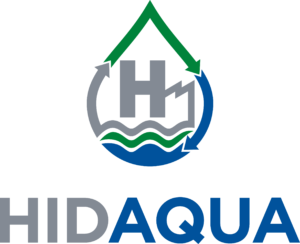
LIFE HIDAQUA – Sustainable water management in high water demanding industries
The main objective of LIFE HIDAQUA is to demonstrate a sustainable water management approach in high water-demanding industries such as the automotive industry by applying the zero-liquid-discharge and the zero-waste concepts. The system will establish recycling of all industrial wastewater at HIDRIA’s Koper business unit (approximately 4000 m3/year) and it will result in recycled products such as salts and building composites (0.5 tonnes of salt and 1 ton of ready-for-use construction products). The ultimate aim is to decrease emission of pollutants and preserve the quality of natural water bodies and natural drinking water resources while exploiting alternative water sources (brackish and storm water).
LIFE Hidaqua is coordinated by the Slovenian National Building and Civil Engineering Institute and involves partners from Slovenian and Spain (HIDRIA, JSI, Geologija Idrija, Eurecat and Hidroquimia).
Website: http://hidaqua.zag.si/en/ | Facebook: LifeHidaqua | LinkedIn: LIFE HIDAQUA project

LIFE BRINE-MINING – Demonstration of an advanced technique for eliminating coal mine wastewater (brines) combined with resource recovery
LIFE BRINE-MINING project (LIFE18 ENV/GR/000019), co-funded by the European Union’s Life Environment and Resource Efficiency Programme, aims to facilitate the implementation of the Water Framework Directive (WFD) and the Circular Economy package in the coal mining industry, improving its wastewater management performance in a way that yields cost-effective, resource-efficient, and legally compliant results. This will be achieved through the development and application of an economically viable, innovative system to eliminate coal mining wastewater and to recover resources in the wastewater, at source. The system will be able to treat and directly recover end-products (minerals/salts and water) of high quality and purity. During the project, the consumers of the recovered materials will be involved to ensure that the end-products will satisfy market specifications and that the recovered materials will be exploited. The project will be implemented in Poland.
The LIFE BRINE-MINING consortium comprises of 9 partners from universities, research institutes, SMEs and construction companies from 3 EU countries.
In this framework, we strongly believe that your contribution in the field of your expertise will provide added value to the project. Our plan is to develop an active network and facilitate information exchange, through remote meetings organization, stimulating fruitful discussions about the main goals and progress of network projects, and specific desalination technology topics. Furthermore, we plan to organize workshops on some general issues, such as circular economy, European Strategies, European Wastewater Policy etc.
Website: https://brinemining.eu | Facebook: LifeBrineMining | LinkedIn: life brine-mining | Twitter: @LifeBrine
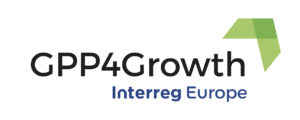
GPP4Growth – Green public procurement for resource-efficient regional growth
GPP4Growth brings together 9 partners from 9 countries to exchange experiences & practices and improve their capacities on implementing resource efficiency policies that promote eco-innovation and green growth through Green Public Procurement (GPP). GPP4GROWTH aims to address the challenges and exploit the opportunities related to the adoption of the new EU public procurement system, effective since April 2016. Europe’s public authorities consume 14% of the EU GDP on goods, services and works of a total estimated value of EUR 1.8 trillion annually. This purchasing power is now anticipated to promote environmentally friendly and resource–efficient goods and services (e.g. energy efficient electronic and electrical equipment supplies, electricity from renewable energy resources, sustainable construction works, low-emission public transport vehicles, cleaning services using environmentally friendly cleaning products, etc.). For this purpose, GPP4Growth will support public authorities to seize new opportunities for using their purchase power to stimulate eco-innovation, resource efficiency and green growth, mostly by using new award criteria in calls and tenders that pay particular attention to environmental considerations. The updated framework that will emerge is anticipated to address the needs of the territories regarding compliance to the new EU public procurement system. More specifically the project aims to:
- • Increase the capacity of regional administrations to effectively implement resource efficiency policies, applying green public procurement.
- • Improve the implementation of national/regional resource efficiency policies, providing incentives to businesses to integrate environmental factors and costs when producing goods and/or providing supplies, services and works.
- • Unlock regional/national investments on green public procurement to promote the development of new green products and services.
- • Improve regional actors’ readiness and create knowledge awareness on the influence of green public procurement on the adoption of sustainable consumption and production patterns by businesses operating in the region.
Website: https://www.interregeurope.eu/gpp4growth/ | Facebook: GPP4Growth | LinkedIn: gpp4growth-project | Twitter: @GPP4Growth
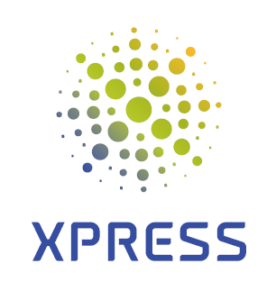
XPRESS – Support for Public Procurements to facilitate the collaboration between SMEs and public sector for the development and adoption in renewables in regions
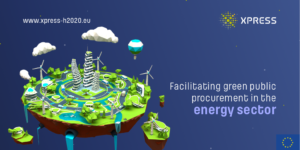
XPRESS, an EU-funded project under Horizon 2020 research and innovation programme, has officially announced the launch of five online resources that aim to provide support to Public Procurements to facilitate the collaboration between companies and the public sector for the adoption of renewable energy sources in Europe. All tools are made available online and are free of charge.
Among the resources developed by the XPRESS consortium, three are Tenders Electronic Daily (TED)-based. Through the XPRESS website, interested parties can have access to:
- • A RES tender search engine (TED-based) to facilitate SMEs’ access to tenders embracing Renewable Energy Sources. The user-friendly XPRESS RES tender search engine allows users to find the most recent calls for tenders published on TED, according to a tailored set of CPV codes (contract topics), keywords, deadline, country and type of document.
- • A RES partner search engine (TED-based) to facilitate the identification of public procurers and enterprises already involved in RES tenders based on year and country. The RES partner search engine identifies all public procurers and enterprises who, according to TED, issued or won a tender related to RES technologies.
- • A database of past SME-friendly RES tenders (TED-based) for public authorities willing to adopt RES technologies via Green Public Procurement (GPP). The third XPRESS tool is meant to encourage public buyers to implement Green Public Procurement with a set of more than 3900 SME-friendly tenders embracing RES published from 2016 to 2018, stored in an online database on XPRESS platform. All past tenders can be searched according to keywords, CPV code, year, country and budget range.
- • A RES Library collecting case studies of public procurers and SMEs who implemented or awarded RES tenders and presentations of all the XPRESS workshops. The RES Library offers case studies on barriers to RES investments for SMEs and for public authorities, factsheets on LCA analyses performed by the project, and all presentations utilised during XPRESS co-creations workshops and stakeholder cafés.
- • A Matchmaking Tool to facilitate connections between SMEs offering RES solutions and Public Authorities (PAs) willing to adopt them. The XPRESS Matchmaking Tool allows users to list the RES technology the offer (SMEs) or seek (PAs) and indicate the kind of support they wish to receive when it comes to GPP. The Tool will then matchmake users basing on their preferences. Additionally, each user is capable of sending contact requests to all subscribers and edit their profile, while Public Authorities can directly upload a tender allowing SMEs to express their interest in it.
The tools combined are meant to increase demand and supply sides of renewable energy sources (or RES) technologies across the EU, as a result of research performed by the XPRESS Consortium based on 2015 and 2017 Flash Innobarometer and Eurobarometer datasets; TED (Tenders Electronic Daily) dataset; EUROSTAT dataset on LCA; a survey launched on the XPRESS portal; XPRESS co-creation workshops and more than 20 case studies.
For media enquiry please contact pietro@loba.pt
Website: https://www.xpress-h2020.eu | Facebook: xpressh2020 | LinkedIn: xpressh2020 | Twitter: @xpressh2020
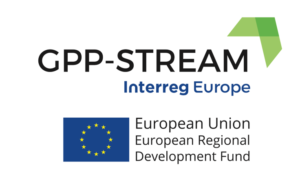
GPP – Green Public Procurement and Sustainability Tools for Resource Efficiency Mainstreaming
European regions play a multiple role in the adoption of green public procurement (GPP) policies as they elaborate and adopt GPP plans, can mainstream GPP within all policy instruments that they manage, can purchase eco-innovative and resource efficient goods and services, playing thus also a significant role the promotion of more resource efficient economies. There are still large areas for improvement in the adoption of GPP in relation to EU funded programmes and other policy instruments, in the undertaking of the tool by beneficiaries and in the monitoring of GPP implementation, hence in the evaluation and mainstreaming of its benefits. GPP toolkits, common environmental criteria, training materials and help desks have been developed throughout Europe. Limited experience is yet available on how to include environmental criteria into financing instruments and in the implementation of development strategies. GPP-STREAM builds on the idea that interregional cooperation can help mainstreaming GPP policies within the administrations involved and ensure that resource efficiency measures are spread and benefits acknowledged. GPP-STREAM AIMS The project aims to improve the management, implementation and monitoring of policy instruments that integrate GPP approaches so as to ensure that resource efficiency gains can be maximized and that resource efficiency objectives are institutionalized through GPP. The project is coordinated by Region Friuli and is implemented in partnership with 8 Bulgarian, Spanish, French, Italian and Romanian bodies that have complementary environmental and GPP expertise. RESULTS AND OUTCOMES 5 transnational learning events, at least 300 stakeholders involved, 13 GPP webinars, 5 GPP toolkits and one online platform, 8 policy instruments from 5 EU countries will integrate GPP approaches, 40 EU policy instrument managing authorities apply GPP-STREAM toolkits.
Website: https://www.interregeurope.eu/gpp-stream/ | Facebook: @gppstream | LinkedIn: GPP-STREAM Project | Twitter: @GppStream
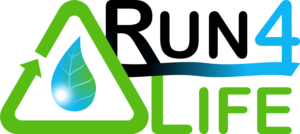
RUN4LIFE project
Run4Life is an EU-funded project under Horizon 2020 that aims to demonstrate an alternative strategy for improving the recovery of resources from wastewater, using a decentralized approach in which blackwater (toilet wastewater), grey water (other domestic wastewater) and organic kitchen waster are collected separately. Each flow receives the necessary treatment for efficient nutrient recovery. To achieve this goal, different innovative technologies have been considered, combined, and applied in different demonstration sites.
In the project framework an assessment of the applied technologies based on the Environmental Technology Verification (ETV) procedure, is carried out to prove their eco-innovative character. In this context, Run4life project has established some synergies with Life Project ProETV.
Run4life project is coordinated by AQUALIA and involves 14 other organizations from different EU countries with their expertise in the nutrient recovery value chain.
Website: https://run4life-project.eu/ | LinkedIn: Run4Life Project | Twitter: @RUN4LIFE_H2020
![]()
LIFE-3E: project
The goal of LIFE-3E: Environment-Energy-Economy (LIFE19 ENV/ES/000143), co-financed by the LIFE Programme of the European Union, is to develop and demonstrate an innovative process to promote water reclamation and reuse, integrating the production of in-situ renewable energy in the coastal Urban Wastewater Treatment Plant (UWWTP) of Comillas (Cantabria, Spain). This so-called Blue Energy will be generated by recovering the energy contained in the saline gradient through Reverse Electrodialysis. The project aims to contribute to improve the sustainability of water resources, promoting water reuse for road and street cleaning. In addition, it will minimize the external energy demand for wastewater treatment processes and reduce the Greenhouse Gas Emissions related to the consumption of fossil fuels.
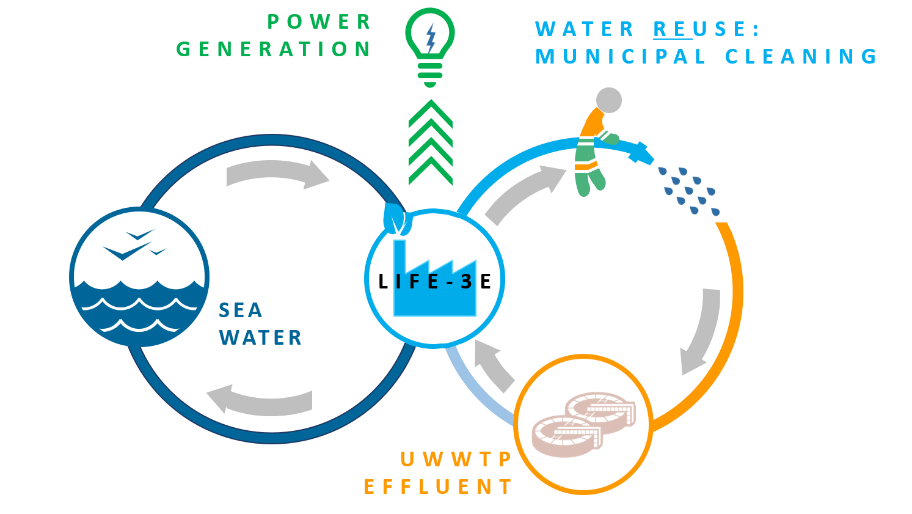 The main objectives of the project are:
The main objectives of the project are:
- To design, construct and operate an innovative prototype to improve the efficiency in wastewater reclamation operations
- To integrate the system into Comillas UWWTP and to optimize its operation in order to maximize the environmental and socioeconomic benefits of the LIFE-3E approach
- To evaluate the environmental & economic impact of the technology through Life Cycle Analysis tools
- To study the replicability of the technology at national and European level
The LIFE-3E consortium comprises 5 partners from universities, research centers, public entities and SMEs, collaborating to apply our environmental research, innovation, management, assessment and communication excellence to the project.
Website: https://life3e.eu/ | LinkedIn: Life-3E | Twitter: @life3e | Facebook: LIFE-3E | Instagram: life_3e

Remine Water: project
Remine Water is the acronym for the project ‘’Solar powered wastewater reuse and resource recovery in mining’’. It is an European project co-funded by the LIFE Programme that aims to minimise mining wastewater discharges and contribute to the circular economy by reusing most of the discharged water and recovering valuable substances contained within mining industry process streams.
The mining sector is an important water consumer in Europe, as water is a critical component in the operation of a mine. In spite of the improvement in wastewater treatment processes and the implementation of partial reuse of inner water flows to reduce the water footprint, water is still discharged after ensuring its quality and dissolved metals are removed through precipitation as sludge for further management as waste.
The main goal of Remine Water is to transform the current process into a circular process. Remine Water will implement this by developing a system that allows water to be reused and the by-products contained in mining wastewater, such as acids, metals and minerals to be recovered.
In particular, Remine Water will develop a pioneering treatment train to recover and reuse wastewater in the mining sector. This innovative system will be powered by solar thermal energy, thus reducing its carbon footprint and achieving a more environmental and economic process. Moreover, Remine Water will develop a treatment train to recover acids and transition metals from mining industry process streams, which will be reintegrated in the processes.
Website: https://www.reminewater.eu/
Contact
LIFEproETV Coordinator
Institute for Ecology of
Industrial Areas, Katowice, Poland
i.ratman-klosinska@ietu.pl
Follow us on Twitter
Disclaimer
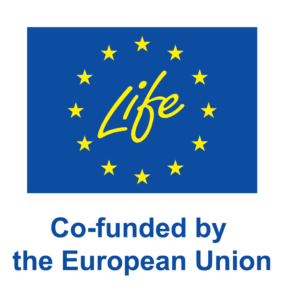 |
This project has received funding from the European Union’s LIFE Programme and is co-financed by the National Fund for Environmental Protection and Water Management, Poland and the Ministry of Agriculture, Hungary | 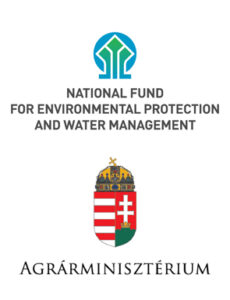 |


